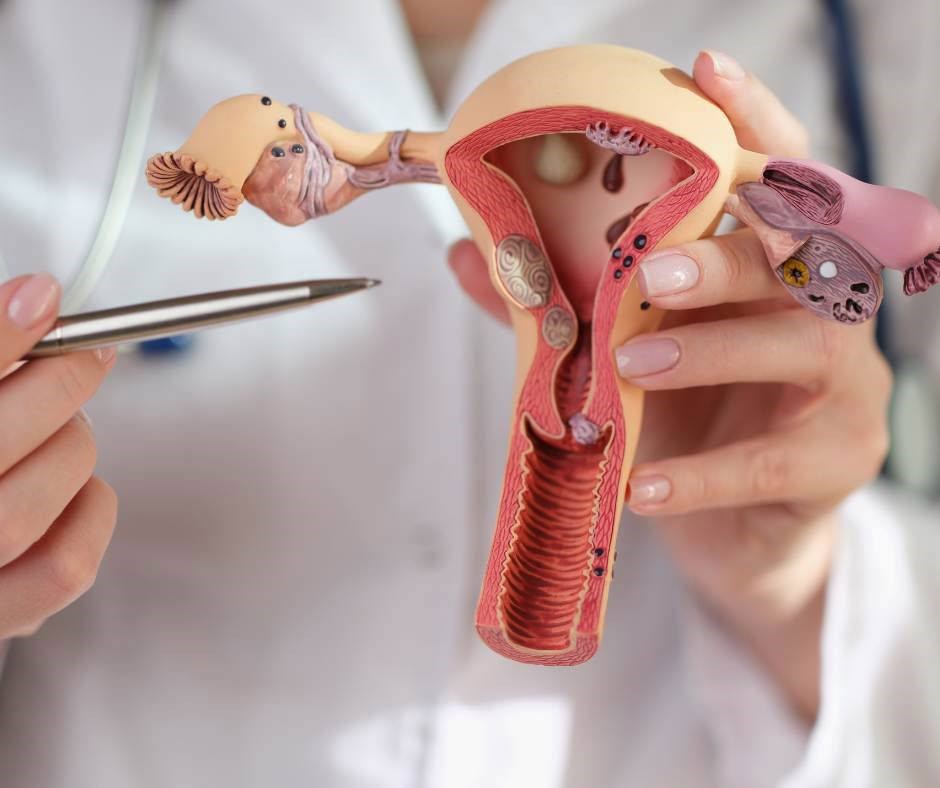Surgery for Endometrial Cancer

Endometrial cancer (cancer of the lining of the womb/ uterus) is one of the common gynecological cancers, with 2-3% of cases having a genetic link. It is common in women who have been through menopause and one of the risk factors is high body mass index (BMI) or obesity. The most common symptom of endometrial cancer is abnormal vaginal bleeding, including bleeding after menopause, bleeding between periods, or bleeding that is unusually heavy.
Treatment options depend on several factors, including the type and stage of cancer, possible side effects, your overall health, your age, and your personal preferences. This includes whether or how treatment will affect your ability to have children, called fertility. Uterine cancer is treated by one or a combination of several treatments including surgery, radiation therapy, and medications. Combinations of these cancer treatments are often recommended, but they depend on the stage and characteristics of the cancer.
Common surgical procedures for uterine cancer include:
1) Hysterectomy
Depending on the extent of the cancer, the surgeon will perform either a simple hysterectomy (removal of the uterus and cervix) or a radical hysterectomy (removal of the uterus, cervix, the upper part of the vagina, and nearby tissues). For patients who have been through menopause, the surgeon will typically also perform a bilateral salpingo-oophorectomy, which is the removal of both fallopian tubes and ovaries
A hysterectomy may be performed either by abdominal incision, laparoscopy, or robotic surgery, which uses several small incisions, or vaginally. Keyhole surgery has enhanced recovery, less blood loss, less postoperative pain, and shortened hospital stay.
2) Lymph node removal
At the same time as a hysterectomy, the surgeon may remove lymph nodes near the tumor to determine if the cancer has spread beyond the uterus. This may be done through a procedure called a sentinel lymph node biopsy or lymphadenectomy. A sentinel lymph node biopsy might involve an injection of dye into the uterus during the hysterectomy and removal of the few lymph nodes where the dye collects. This procedure has become more common in uterine cancer than lymphadenectomy. A lymphadenectomy, or lymph node dissection, is a surgical procedure in which a group of lymph nodes is removed.
If the patient has no cancer remaining in the tissue removed during a hysterectomy, additional treatment may not be needed. However, regular screening and testing to check for a return of the cancer is recommended.
Side effects of surgery
After surgery, the most common short-term side effects include pain and tiredness. Other immediate side effects may include nausea and vomiting as well as difficulty emptying the bladder and having bowel movements. After surgery, the patient’s diet may be restricted to liquids, followed by a gradual return to solid foods.
If the ovaries are removed, this ends the body’s production of sex hormones, resulting in early menopause (if the patient has not already gone through menopause). Soon after removing the ovaries, the patient is likely to experience menopausal symptoms, including hot flashes and vaginal dryness.
If a lymphadenectomy is done, some people may experience swelling in their legs, which is a side effect called lymphedema.
After a hysterectomy, pregnancy is no longer possible. For this reason, premenopausal patients who wish to preserve their fertility and have children in the future should talk with their doctor about all their options before any treatment begins. Sometimes, fertility preservation is possible and might include less extensive surgery followed by hormone therapy.
3) Radiation therapy
Radiation therapy is the use of high-energy X-rays or other particles to destroy cancer cells.
Some people with uterine cancer need surgery (see above) and radiation therapy. Radiation therapy is most often given after surgery to destroy any remaining cancer cells. Radiation therapy is occasionally given before surgery to shrink the tumor. If a person cannot have surgery, the doctor may recommend only radiation therapy instead.
4) Therapies using medication
-
Chemotherapy
-
Hormone therapy
-
Targeted therapy
-
Immunotherapy
Talk with Dr. Aneeta Talwar, for Best Endometrial Cancer Treatment in Bangalore and about the side effects you might have right after Surgery and later on. There might be things you can do to help prevent side effects. Know what to expect so you can get help right away.

